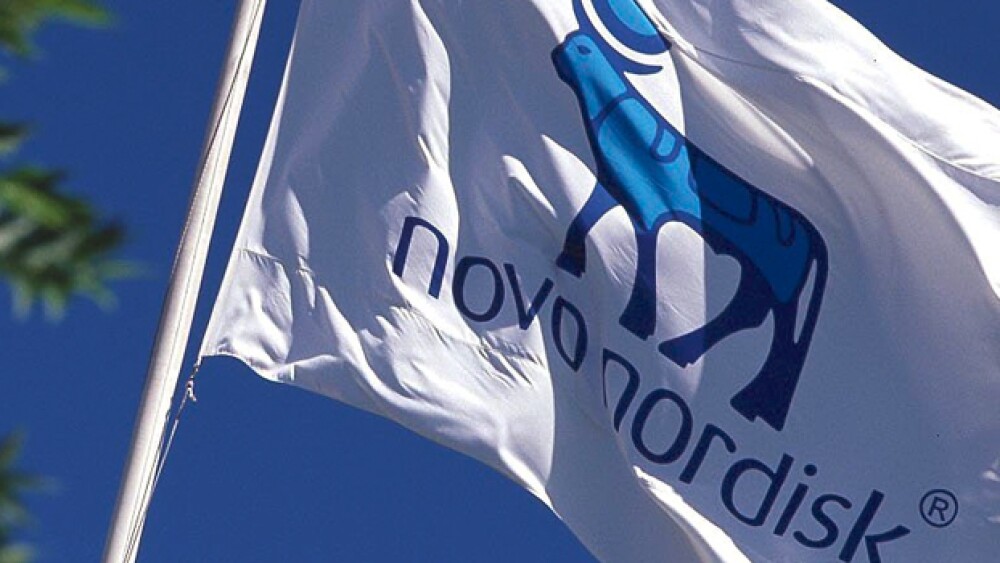Novo’s weight-loss drug Wegovy improves cardiovascular outcomes, Novavax posts surprise Q2 profit, while Nektar Therapeutics files lawsuit against Eli Lilly for misconduct in drug development deal.
Pictured: Novo Nordisk flag hangs from a pole/iStock
It’s been a big week for Danish drugmaker Novo Nordisk. The company announced Tuesday that its obesity drug Wegovy cut the risk of major cardiovascular complications by 20% in a landmark 17,500-patient trial, which was the first to show that such medication has long-term heart benefits. Could this blockbuster weight-loss drug replace existing heart disease medications? We’ll have to see.
In the meantime, Novo’s second-quarter earnings reported Thursday showed that Wegovy brought in over $1.1 billion in sales, a nearly 550% increase compared to the same period last year. Amid record sales of Wegovy, Novo doubled down on its obesity pipeline by acquiring Canadian biotech Inversago Pharma and its novel CB1 receptor-based therapies for $1 billion.
With earnings season in full swing, there were some other financial results that exceeded expectations. Embattled vaccine maker Novavax posted a surprise $58 million net income compared to a net loss of $510 million in the same period last year. However, Novavax is not out of the woods as its turnaround strategy hinges on the launch of its updated COVID-19 shot this fall. CEO John Jacobs acknowledged in the earnings call that “there is still much work to be done with significant execution risk ahead.”
One company that fared poorly this week was DNA sequencing giant Illumina. The company lowered its 2023 guidance amid leadership changes and antitrust scrutiny. Illumina now expects a 1% increase in revenue, down from its previous 7% to 10% growth forecast. Making matters worse, the Securities and Exchange Commission has joined the mounting antitrust scrutiny of Illumina’s acquisition of cancer diagnostics company GRAIL, with the SEC launching its own investigation.
On the legal front, Nektar Therapeutics on Monday flagged data errors from former partner Eli Lilly regarding two Phase Ib studies of its atopic dermatitis candidate rezpegaldesleukin that were conducted by the pharma giant. And, later that day, Nektar filed a lawsuit against Lilly accusing it of scheming to ensure rezpegaldesleukin would not succeed after acquiring a competing medicine.
Another high-profile lawsuit was filed this week. On Thursday, just over a week after Henrietta Lacks’ family settled a lawsuit against Thermo Fisher Scientific, they filed another claim against California-based biopharma Ultragenyx for using Lacks’ body as a “mere manufacturing tool” and staking claim to her genetic material to commercially manufacture adeno-associated virus vectors for gene therapies.
Greg Slabodkin is the News Editor at BioSpace. You can reach him at greg.slabodkin@biospace.com. Follow him on LinkedIn.






